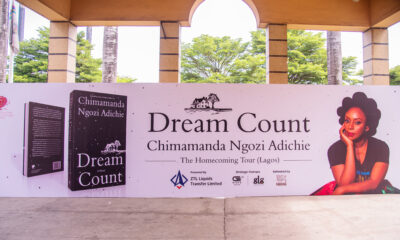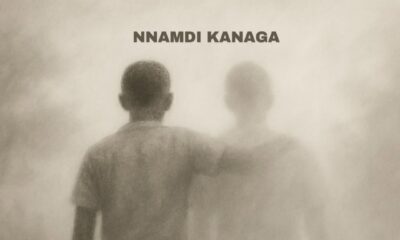Features
Joshua Oyenigbehin: Nollywood Needs to Get Serious About Telling Indigenous Stories
More often than not, Nollywood tells stories they believe the audience will be more likely to embrace, stories that hardly tell the hard truth. The reality is that Nigerians deserve stories that will not be only appealing to Nigerians, but to the universal audience.
 One thing I learned from Chimamanda Ngozi Adichie’s Ted Talk The Danger of a Single Story is that nobody can tell a story about a people more than the people themselves. The talk was, in essence, a call for the people, especially Africans, to tell their own stories to the listening hear of the world.
One thing I learned from Chimamanda Ngozi Adichie’s Ted Talk The Danger of a Single Story is that nobody can tell a story about a people more than the people themselves. The talk was, in essence, a call for the people, especially Africans, to tell their own stories to the listening hear of the world.
Storytelling is a form of branding for people. It is evident that countries and people who tell their own stories well have control of their narrative, how the world sees them. Countries like America are great today, not because of their military might, or the strength of their economy, but because of their ability to tell their own stories.
Nigeria’s cultural, religious and ethnic diversities should be leveraged to tell stories that are compelling. It is unfortunate, however, that Africans have relinquished the responsibility of telling their own story to foreigners who know little or nothing about them. For this reason, the world will accept every story told about African hook, line and sinker, even when negative, derogatory and lopsided.
One of the reasons we continue to have recurring problems of culture clashes, violent attacks, religious crises, and ethnic conflict, is because we fail to tell stories of the struggles and sacrifices of the generations before us.
The fight for secession by Biafra agitators will be a recurring issue if we do not recognise and tell the stories of those who fought for the soul of the Nigerian nation. For instance, we hardly see documentaries and movies about the Biafran struggle, except a few.
We must not limit our storytelling to books; we need to relive these stories, through documentaries and movies. Young people learn better through these means.
Telling greats stories about the unity of Nigeria will go a long way to inculcate the spirit of patriotism. With these kinds of stories, young Nigerians, who know little or nothing about Nigerian history, will understand better how to relate with the historical narrative of the country. They will also be able to shun narratives that are detrimental to the country’s unity.
The diversity of the Nigerian nation must also reflect in the stories we spend our time to tell. There is a need to tell the diverse stories of the minority groups in the country. Most of Nigeria’s minority ethnic groups feel out of place because we do not know much about them. These minority groups can only have a sense of belonging if their own tales are told and promoted.
Nigerians obviously don’t like to tell controversial stories. Stories concerning ethnicity, the civil war, religious crises, and other seemingly volatile topics. Just like the American society acknowledge the problem of racism and slavery by getting them in the right perspective through storytelling, Nigerians should also not shy away from telling stories about the events and people that brought us this far. Stories should be told about the civil war and other conflicts, so that the present generation can learn from them.
The Nigerian movie industry, Nollywood, has done its best to represent the country. The achievement of the industry as one of the three biggest movie industries is laudable. However, the industry has not done enough to represent the country adequately. The industry has the duty to tell stories that reflect the good, bad, and ugly realities of the country.
You will agree with me that the stories presently put out by Nollywood does not reflect the reality of Nigerians. The poverty, killing, suffering, corruption, bad governance, and enmity prevalent in the country. More often than not, Nollywood tells stories they believe the audience will be more likely to embrace, stories that hardly tell the hard truth. The reality is that Nigerians deserve stories that will not be only appealing to Nigerians, but to the universal audience.
Nigerians might not air this view, but they are tired of stories concerning the affluence of those living on the Island or in Abuja. They have had enough of comedy shows that are recycled, of love stories that do not encapsulate the social problems evident in the society we live in.
While Nollywood has made a huge leap, there is still the huge gap the industry must brace up to fill. There are genuine stories out there waiting to be told. I believe Nigerians should be willing to tell controversial stories if they will get us talking about our status as a united country under God.
Only the subtle art of storytelling can help us address the issues the country is grappling with. Everyone should get involved and exhibit an unusual passion for telling these stories. The world needs to know what it really means to be a Nigerian. It’s our collective responsibility.






















